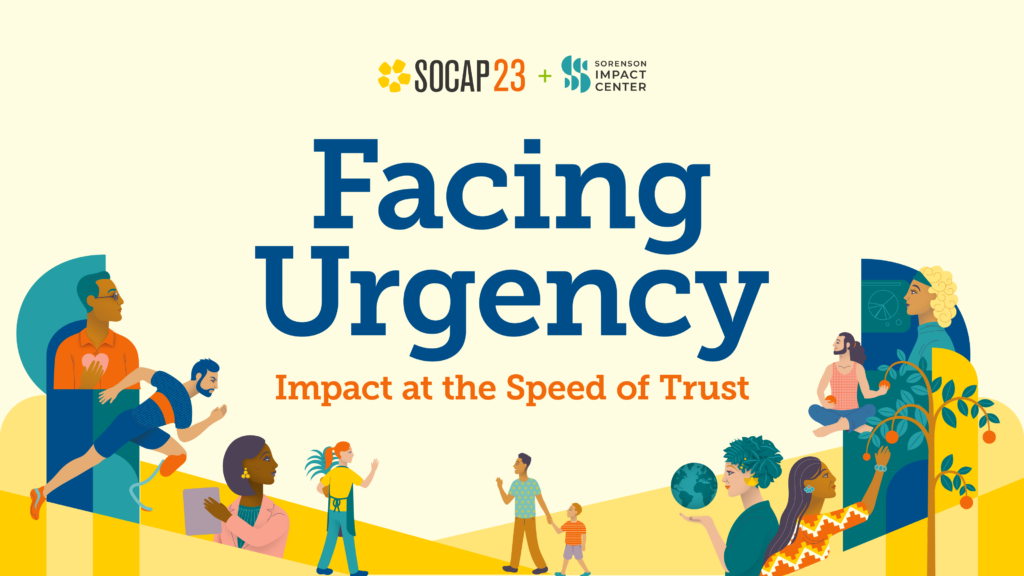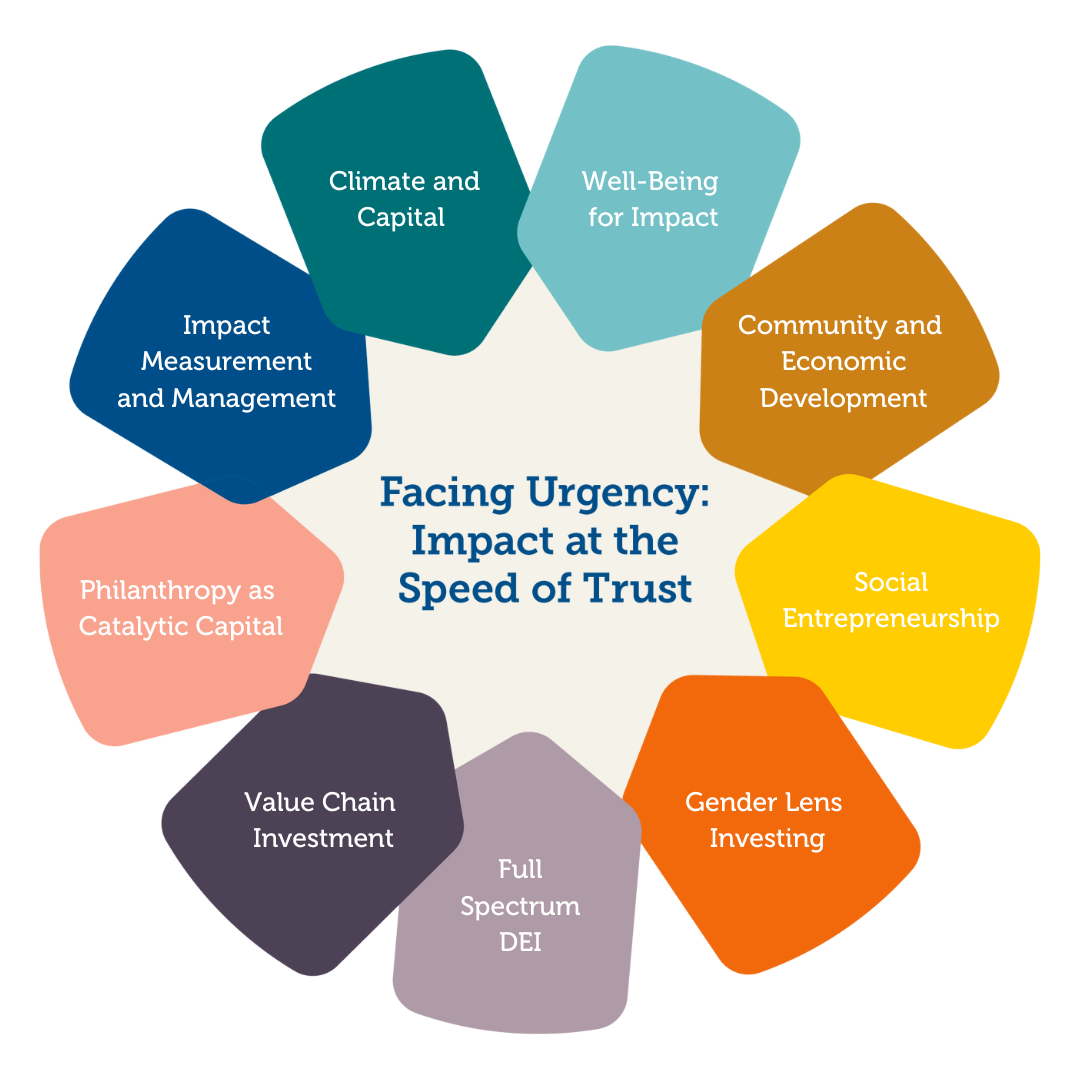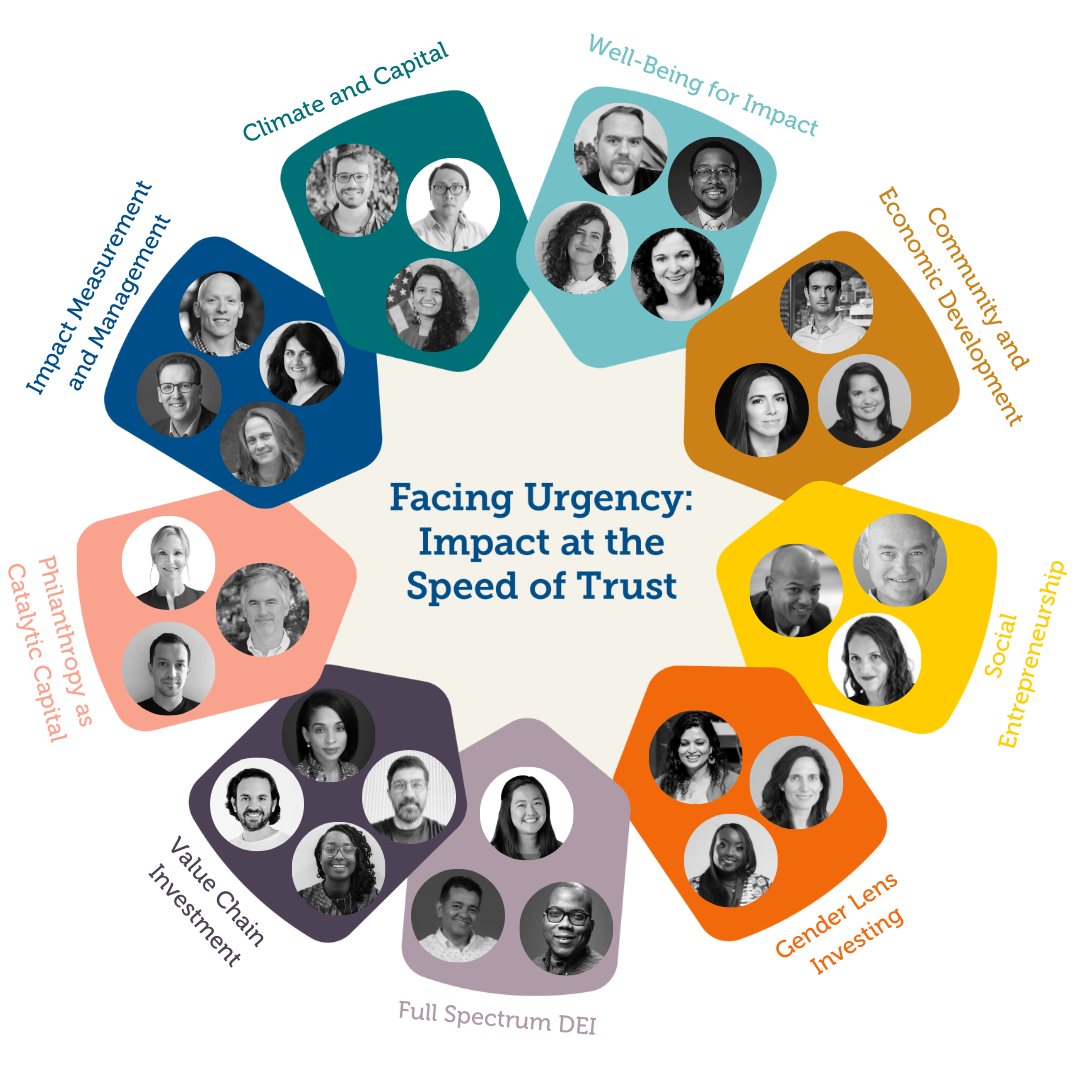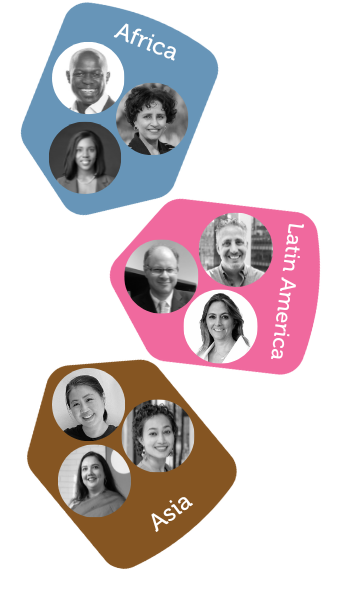Our SOCAP23 Theme, Tracks and Content Curation Councils

Facing Urgency: Impact at the Speed of Trust

Our theme this year, Facing Urgency: Impact at the Speed of Trust, comes from an internal exercise of asking ourselves: Why SOCAP and why now? The answer is that there is a sense of urgency and need for action facing humanity today; yet, our community acting in silos won’t get us very far. We must build deep relationships more quickly to collaborate effectively on the solutions we all seek to challenges around the globe.
We must face the challenges of our time with urgent action and solutions. Trust is essential for catalyzing impactful solutions — when people trust each other, they are more likely to collaborate, share information, and take risks. When you build trust, you create a foundation for collaboration and cooperation. This leads to more innovative and effective solutions.
At SOCAP, we convene to accelerate the speed of trust. We orchestrate discovery, facilitate serendipity, and offer a platform for cross-learning. The theme for SOCAP23 propels our community to work together, collaborate, and co-create as essential ingredients to rapidly create real impact.
Within our theme, we have identified the nine content tracks around which we will organize our sessions. We will also have regional tracks for attendees to follow, focusing on Latin America, Africa, and Asia.
We invite you to join us for SOCAP23 in San Francisco, from October 23 to 25 — find the details and register here.
SOCAP23 Theme and Tracks

Content Curation Councils: Tracks
We take the curation process seriously — it goes beyond selecting and organizing quality presenters and topics. We want our attendees to be a part of the session, a part of the takeaways that build a better future and help advance our community’s global mission.
This year, we have evolved our curation process, moving toward a distributed approach to building our conference programming. Along with those selected through SOCAP Open, the sessions within each content track for SOCAP23 are co-created and curated by Content Curation Councils of 39 experts from around the world working closely with our content and production teams.
The Councils are tasked with identifying the set of sessions that will guide the conference conversations along each track.
Each track and each session is the result of a months-long process, designed to present a SOCAP23 experience that helps our community accelerate relationships, break down silos, and identify gaps — then bridge them.

Content Curation Councils: Regional
Africa, Asia, and Latin America are home to some of the world’s most pressing challenges. The majority of the world’s poor and marginalized people live in these areas, and they are also facing serious environmental challenges, including climate change and deforestation.
These regions also are home to some of the world’s most innovative and promising impact investment opportunities. They have a wealth of human capital and natural resources, and they are also experiencing rapid economic growth. Impact investors can play a vital role in supporting this growth and helping to create a more sustainable and inclusive future for these regions and the world, but it is important to have content from these regions in order to ensure that the solutions are tailored to the specific needs of the communities.
This is why SOCAP Global has the privilege of counting on experts from these three regions to curate specific regional tracks, and who also will serve as a bridge to offer our other Content Curation Councils suggestions of speakers, case studies, and networks that are relevant across all tracks. The cross-cutting aspect of the regional content across all tracks combined with the specific regional sessions will offer the global audience at SOCAP23 the right combination of breadth and depth.


